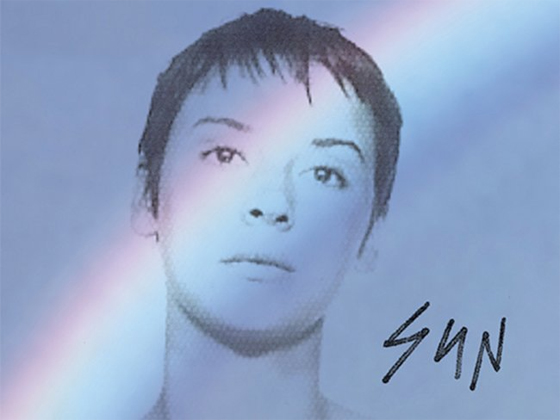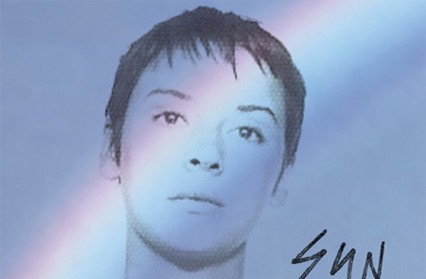John Lavin takes a listen to Cat Power‘s (Chan Marshall) newest collection of original material, Sun which features tracks such as ‘Real Life’.

Cat Power’s first collection of original material in seven years has been publicised as her sunniest, most positive record to date but also as her rehab record. These two categories are often confused but rarely, in actual fact, do they correspond. Countless artists, ranging from Eminem (with his fabulously self-indulgent Relapse and Recovery albums) to Pulp (who decided it would be a good idea to call their queasily unhappy ‘happy’ album We Love Life) to Suede (who, not to be outdone by their Britpop peers, went so far as to call the lead single from A New Morning, ‘Positivity’), have laboured under the illusion that giving up drugs and the cod-philosophical revelations experienced whilst doing so, are of relevance to admirers of their music. With inevitable irony, what usually transpires are albums that are curiously depressing listening experiences. Bereft of soul, short on tunes and big on pseudo-profundity and lyrical clichés. Albums which, in other words, have been made by people who are recovering from an illness.
Alas, so it proves with Sun, which is by some distance the weakest album Marshall has ever recorded. While her move away from lo-fi indie soul to a fuller, not-quite-mainstream-but-almost sound on The Greatest and Jukebox was – whether you yearned for the lo-fi melancholy of What Would the Community Think? or Moon Pix, or not -universally agreed to be a triumph, the production here is mainstream in a way that is just, frankly, a bit unpleasant to listen to. Mainstream in an unholy alliance of INXS-style stadium rock with commercial R&B type of way. This aesthetic reaches its apotheosis on ‘3,6,9’: quite simply a listless commercial R&B song.
Marshall’s voice would be suited to R&B, as indeed it would be to strong work in any style, but this is really not the song to attempt such a manoeuvre with. It is also a prime example of the rehab lyric, where previously fine lyricists suddenly think that it’s perfectly acceptable to use the phrase ‘monkey on your back’ in a non-ironic way. In this case, it is in the supremely annoying chorus, which opines, ‘3,6,9/ You drink wine/ Monkey on your back/ You feel just fine.’ There is also, (sadly, not for the last time on Sun), the use of Autotune to strangely dated effect, which makes you wonder what on earth Marshall is thinking. A modern R&B record with her voice on it would probably sound fantastic but ‘3,6,9’ sounds hopelessly out of touch.
This is not to say, however, that the whole album is without merit. ‘Manhattan’ is a sweet, stripped back piano-led ballad that shows off Marshall’s wonderful, bittersweet voice and asks ‘that we don’t look at the moon tonight.’ Opener ‘Cherokee’, meanwhile, begins with a jangly, anthemic guitar riff that suggests that the 80’s-sounding-production is actually going to be a good thing. ‘Never knew love like this, the sun, sea, you and I/ Never knew pain like this,’ she begins with promising portentousness. It also features a classic Marshall chorus, which, with its almost mantra-like harmonies, recalls ‘Cross Bones Style’ from Moon Pix, albeit in an 80s-guitar-pop-with-overtones-of-commercial-R&B kind of way.
Indeed, much has been made of the album’s title in relation to Moon Pix. Sun is, presumably, given Marshall’s love of Southern Soul, also alluding to the legendary studios of the same name but it is also a reference to the album which defined people’s preconceptions about her as a songwriter specialising in exquisite sadness. Sun clearly wants to be the flip side to that preconception – think of that ‘don’t look at the moon tonight’ line. Marshall even uses a twenty-year-old photo of herself for the front cover, as though to say that she has returned to her starting point and to emphasise a) her renewed positivity and b) the fact that she was never so much the doom-laden character people took her for.
All of which is fantastic in principle, if only the album wasn’t in itself such a disappointment. But every great artist makes some weak albums along the way and it may well be that Sun proves to be an important piece in the Marshall canon in terms of where she is headed next. Certainly, the album closes on a real high with the ten-minute Iggy Pop-featuring ‘Nothin’ But Time’. Based around a lolloping, piano-led ‘Heroes’-Esque groove, and the simple but undeniably catchy lyric, ‘You wanna live/ Your way of living,’ Marshall delivers a great Lou Reed meets Patti Smith vocal. By the time Iggy turns up halfway through and starts to bellow, ‘You wanna live!’ there can be little doubt that the listener, however unoriginal this music is, is having a completely fantastic time. This may be partly because Marshall sounds more at home in this more traditionally indie kind of setting but it is probably much more to do with the fact that ‘Nothin’ But Time’ is a really good song.
The real problem with Sun isn’t so much the horrible production, although clearly, it doesn’t help matters, but more the fact that the majority of the songs just aren’t very good. That it has taken seven years to write does not bode particularly well for the future but on the other hand, it may just be that this is the album that will be seen as the precursor to a great new body of work. With Marshall’s extraordinary voice and undoubted songwriting abilities, it would be a pity if it wasn’t.
Cat Power‘s album, Sun is available now.
John Lavin often contributes articles to the Wales Arts Review website.











